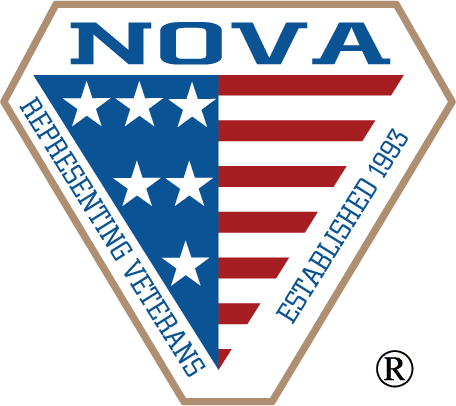If you’re a veteran dealing with a service-connected condition, figuring out the disability rating system can be difficult. You’ve served your country and now you’re trying to get the benefits you’ve earned. But between forms, medical exams, and rating percentages, the process often leaves veterans like you with more questions than answers.
At Perkins Studdard, we’ve worked with many Georgia veterans and their families to help them better understand the system and what it means for their financial future. In this guide, we’ll explain what you need to know about the veterans’ disability rating system so you know where you stand and what steps to take next.
What Is a VA Disability Rating?
When you apply for disability benefits through the U.S. Department of Veterans Affairs (VA) and are granted service connection, you’ll receive a decision letter that includes a rating. This rating, which is given as a percentage, reflects how much your condition impairs your ability to work and perform daily tasks. It also determines how much disability compensation you receive each month.
Ratings range from 0% to 100% in 10% increments. A 0% rating means the VA recognizes your condition is service-connected, but it doesn’t currently affect your ability to function, while a 100% rating means you’re considered fully disabled, and you’ll receive the maximum compensation available. The rating not only affects your monthly payment but also determines your access to other benefits, including VA healthcare, vocational rehabilitation, housing grants, and tax breaks.
How the VA Determines Your Rating
The VA uses the VA Schedule for Rating Disabilities (VASRD) to assign a percentage to each condition. This schedule considers the severity of symptoms, test results, and how the condition impacts daily life. Each disability has its own diagnostic code and criteria, and the more severe the impact, the higher the rating.
Let’s say a veteran has service-connected knee injuries. The VA looks at their range of motion, degree of instability, and how the issue limits the person’s ability to walk or stand. Based on those findings, a disability percentage is assigned. For mental health conditions like PTSD, the VA considers occupational and social impairment, which includes things like panic attacks, memory loss, and the ability to maintain relationships.
Medical evidence plays a major role in these determinations. That includes service treatment records, private or VA medical exams, and any lay statements from people who know how your current condition affects your life. One of the biggest factors is the Compensation & Pension (C&P) exam, which is a VA-administered or contracted evaluation where a medical professional assesses your current symptoms.
The VA may rate multiple conditions at once, but they don’t simply add percentages together. Instead, they use a method called “combined ratings,” which we’ll explain next.
The VA’s Combined Rating Formula
If you have multiple service-connected disabilities, the VA doesn’t just add the percentages. Instead, it uses a formula that accounts for the impact of each medical condition on your overall health. The reasoning behind this approach is that a person can’t be more than 100% disabled.
Here’s how it works in practice: the VA takes your most severe disability first and applies that percentage to 100. If you’re rated at 50% for a back injury, then you’re considered 50% disabled and 50% still functioning. Your next rating is then applied to the remaining functional portion.
So if your second rating is 30%, the VA takes 30% of the remaining 50%, which is 15%. That 15% is added to your original 50%, giving you a combined rating of 65%. The VA rounds this number to the nearest 10%, so you’d receive a 70% rating.
This process continues for additional conditions. The result often ends up lower than expected, and it’s one of the most confusing parts of the system for disabled veterans. Understanding this formula is critical to determining how much the next rating must be to result in an increase in monthly compensation. It often requires more than veterans would otherwise think.
What Happens When VA Disability Ratings Change?
Your rating isn’t necessarily permanent. The VA can increase, decrease, or keep it the same depending on your condition and new or additional evidence.
Sometimes, the VA schedules re-examinations to check if your condition has improved. If it believes your health has gotten better, it may try to reduce your rating. On the other hand, if your condition worsens or you develop a secondary one linked to your original injury, you can request an increase.
If the VA assigns a rating you believe is too low (or denies your claim altogether) you have options. You can file a supplemental claim with new evidence, request a higher-level review, or appeal directly to the Board of Veterans’ Appeals. These decisions carry deadlines, so timing matters.
Working with an experienced attorney can make a big difference here. At Perkins Studdard, we’ve helped veterans across Georgia and across the country challenge rating decisions and secure the benefits they were owed. Whether it’s building medical evidence or navigating the appeals process, the right legal support can give your claim the attention it needs.
Total Disability and Individual Unemployability (TDIU)
Some veterans may not receive a 100% disability rating, but their service-connected conditions prevent them from maintaining gainful employment. In that case, TDIU may apply. TDIU, which stands for Total Disability based on Individual Unemployability, allows veterans who can’t work due to their disabilities to receive compensation at the 100% level, even if their combined disability rating is below that.
To qualify, you typically need one condition rated at least 60%, or multiple conditions with a combined disability rating of 70%, with at least one rated at 40%. Then, you must show that your disabilities prevent you from holding steady, meaningful employment.
Achieving TDIU isn’t automatic. You need strong evidence, such as work history, employer statements, and medical records, that proves your service-connected conditions limit your ability to earn a living. If you’re dealing with that situation, it’s important not to give up. Many veterans qualify but don’t realize they’re eligible.
Permanent and Total Ratings
If the VA determines that your condition is not only severe but unlikely to improve, it may assign a permanent and total (P&T) rating. This means you receive benefits at the 100% rate for life, with no further exams or risk of reduction. While a P&T designation does not increase your monthly compensation, it does open the door to additional benefits for you and your dependents, including education benefits and certain state-level tax exemptions.
However, the VA doesn’t always label a rating as permanent upfront. In some cases, you’ll need to apply for P&T status separately and show that your condition is stable, long-term, and unlikely to change.
Common Conditions and How They’re Rated
Some conditions appear frequently in veterans’ claims. These include hearing loss, tinnitus, PTSD, back injuries, knee issues, traumatic brain injury (TBI), and respiratory problems linked to burn pits or other exposures.
Each of these comes with its own rating schedule and set of criteria. For example, tinnitus is almost always rated at 10%, regardless of severity, while PTSD ratings can range from 0% to 100% based on how the symptoms affect work and relationships.
Exposure-related illnesses are gaining more attention, especially with recent legislation expanding eligibility for veterans exposed to toxic substances. If you think your condition is connected to your military service (even if it wasn’t diagnosed until years later), it’s worth speaking with a legal professional to evaluate your case.
Applying for Veterans Disability Benefits
If you want to apply for benefits, the first step is to make sure you have a complete application with solid medical evidence. This includes current diagnoses, clear links to your time in service, and up-to-date treatment records. If you haven’t already, you can file for an increase and will need to attend all scheduled appointments.
If you’ve already received a decision but believe your percentage rating is too low (or if your condition has worsened) start gathering new evidence. This might mean updated medical exams, written statements from doctors, or letters from friends and family who can speak to how the condition affects your life.
Should You Hire a Veterans Disability Attorney?
Although you’re not required to hire legal representation for your VA disability claim, doing so can make a positive difference in the outcome.
First, an experienced attorney knows how to build a strong case from the start. That means gathering the right medical evidence, connecting your condition to your time in service, and avoiding common filing errors that lead to delays or denials.
Second, if the VA assigns a rating that’s too low or denies your claim altogether, an attorney can step in quickly to challenge the unfavorable decision. That includes filing supplemental claims, requesting a higher-level review, or preparing your case for the Board of Veterans’ Appeals. These processes have deadlines and specific requirements. Miss one detail, and your case can stall or become a final decision not in your favor.
Attorneys also know how to present the evidence in a way the VA responds to. That’s especially important for complex claims, secondary conditions, or requests for Total Disability based on Individual Unemployability (TDIU). If your condition keeps you from working, but your rating doesn’t reflect that, a lawyer can help make the connection and push for the disability compensation you deserve.
At Perkins Studdard, we focus on results. We’ve helped veterans across Georgia and nationwide secure service connection, receive higher ratings, win appeals, and get the benefits they’ve earned. You served, and now we’re here to serve you.
How Much Does It Cost to Hire a Lawyer for Your VA Disability Claim?
Hiring a lawyer for your VA disability claim typically doesn’t involve any upfront cost. Most attorneys who handle these cases work on a contingency fee basis. That means you only pay if your lawyer helps you win past-due benefits.
In almost all cases, the fee is usually a percentage of the retroactive benefits you’re awarded. These are the back payments the VA owes you from the time you filed your claim to the time they approve it. Ongoing monthly benefits going forward are yours to keep in full.
Here’s what that means in real terms: If you appeal and awarded past-due benefits, you would pay your attorney from those retroactive benefits but only after you win. You owe no fee if the appeal isn’t successful. VA-accredited attorneys must also follow strict rules about fees, and the VA reviews all agreements to make sure they’re fair and within legal limits.
At Perkins Studdard, we don’t charge upfront fees. We only get paid if you do. Our focus is simple: getting you the compensation you’ve earned, without adding financial stress. If you want to know if your case qualifies, reach out today for a free consultation. We’ll review your situation, explain the process, and let you know exactly what to expect.
Get a Free Consultation From a Georgia Veterans Disability Lawyer
At Perkins Studdard, we know that veterans gave everything to protect others. When service-connected injuries, illness, or trauma follow them home, they deserve more than a rating: they need a system that works. Understanding how that system functions is the first step toward claiming what’s rightfully yours.
If you’re unsure about your rating, thinking about filing a claim, or stuck in the appeals process, let’s talk. Your service matters and your disability benefits should reflect that. For more information or to speak to an experienced lawyer, contact our team today for a free initial consultation.








